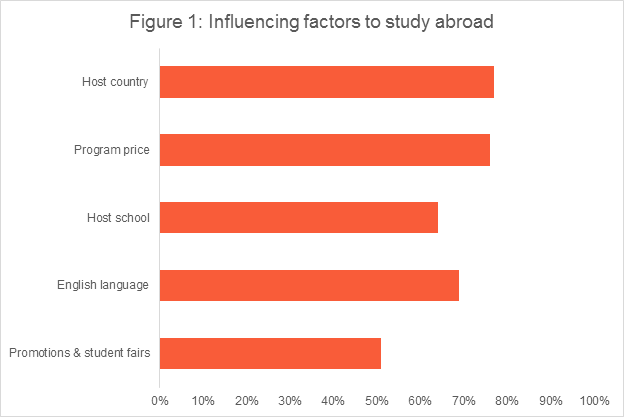Generation Z: more motivated than ever to study abroad
What does Generation Z think about studying abroad? What motivates them? What keeps them from studying abroad? We recently stumbled upon an insightful report by the non-profit organisation, AFS, that explores Generation Z and their motivations for studying abroad. Here we will list some of the key takeaways relevant to anyone interested in international student recruitment.
There’s no such thing as a typical international student
Every student is unique, and so are his or her reasons for studying abroad. 5,255 High School-aged students (13-18 years of age) in 27 countries participated in the research study, and they were all placed in four different categories. The cultural hitchhikers comprise the majority group, taking a 36% proportion. Students in this category were largely motivated by having an intercultural experience when studying abroad; and yet, at the same time, these students indicated limited financial resources. In contrast, the resume packers, representing the minority (12%), primarily focus on obtaining quality education at a reputable institution, and also show significantly higher financial resources than the other three groups.
English-taught courses are still preferred
The data shows that a staggering 77% of students prefer English-speaking countries (the United States, the United Kingdom, and Australia) as study abroad destinations. Whereas Western European Countries (Italy, France and Germany) receive a similar status, Generation Z students are less inclined towards Brazil and China (38%).
The report found, however, that having English as the language of instruction is not as important as the host country’s reputation. That’s why the report states that “destination marketing and promotion is poised to play a crucial role”. Another major influencing factor is the host university’s reputation (64%). Beyond the specific program features, the price plays a decisive role for the prospective students across the globe. On the other hand, the influence of traditional advertising (51% promotions combined with student fairs) and social media do not play a major role in the decision- making. “Generation Z,” notes the report, “goes beyond initial impressions to gain a better understanding of substantive specifics and characteristics before making decisions”.

Figure 1: Influencing factors to study abroad
Data source: AFS
What keeps students from studying abroad?
What concerns do Generation Z students have about studying abroad? Most students – especially in light of the negative press recently surrounding on- and off- campus events – are concerned about their own security, difficulties making friends, getting homesick, finding the right study/life balance, or fitting in.
The security concerns that exist among future international students are expected to significantly affect their destination choice. However, despite this possible impediment, the programme’s price and the reputation of the institution are not the only qualities Generation Z cares about. The opportunities that the host country has for exploring the culture remain huge considerations in a student’s motivation for studying abroad. National institutions can take the lead by portraying their countries as welcoming places for international students and by highlighting the integration programmes that make transitioning to a new country easier.

Figure 2: Concerns about studying abroad
Data source: AFS
Resumé Packers
The report categorized students into four different categories. The resumé packers represented the minority. Nevertheless, as a group, they may still capture the interest of student recruiters because of their high financial resources and mobility. Moreover, resumé packers are also looking for quality education at a university with a good reputation. These students want to gain a sound educational background in order to enhance their job prospects.
It’s not always easy keeping up with Generation Z and its quickly shifting motivations, but reports like these help us keep track of what the future holds.
For more updates, follow us!





